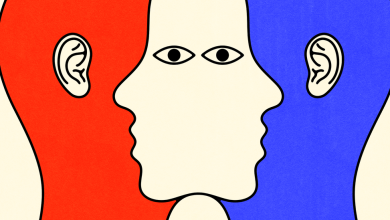Give Duke Ellington the 1965 Pulitzer Prize

Want racial reckoning? Then it’s time to give Duke Ellington the Pulitzer Prize he was unjustifiably denied in 1965. The jazz scholar Ted Gioia has circulated a Change.org petition with this call, and as of this writing, it has surpassed 6,000 signatures.
I’m hoping it stimulates a big, beautiful noise that undoes this wrong.
As Howard Klein reported for The Times in 1965, “the advisory board for the Pulitzer Prizes rejected a unanimous recommendation from the music jury to award Duke Ellington, the jazz musician, composer and bandleader, a special citation for long-term achievement.” It was the second consecutive year that no Pulitzer for music was awarded. A few years before, the jolly yet evanescent musical “How to Succeed in Business Without Really Trying” had been awarded a Pulitzer for drama despite that few would speak of it and anything by Ibsen in the same breath. One may love it and yet be surprised it earned so prestigious an award. But for Ellington in 1965? Bubkes.
We assume that Pulitzers are awarded to work that qualifies as for the ages, that pushes the envelope, that suggests not just cleverness but genius. There can be no doubt that Ellington’s corpus fits that definition.
I’ll never forget deciding, in my early 20s, that I wanted to know what the big deal was about Ellington and popping in a CD with a recording of 1927’s “Black and Tan Fantasy.” Just the opening, in all of its blue, narrative and outright odd soaring, made the proverbial hairs on the back of my neck stand up. It was one of those “What is this?” moments. I remember marveling about it with my father, a lifelong jazz fan, with him smiling and saying, “John, you got it!”
Indeed, Ellington was something one “got.” Like James Joyce, the Coen brothers or Charles Mingus, you might not quite get what the hubbub is about at first, but when you do, watch out. “Mood Indigo” opens with muted trombone on melody playing up high, then clarinet playing down low, then muted trumpet playing somewhere in the middle — deliciously weird! The result is a gentle astringence that results in an uncommon kind of tenderness.
As I sought to know more of, and about, Ellington, I was struck by the opinions of James Lincoln Collier, whose 1987 biography of Ellington was devoted to dissing much of Ellington’s work. Collier opined that when Ellington started writing long-form pieces instead of three-minute ones that fit on one side of a 78 r.p.m. record, he was being pretentious and strayed from what he was best at. But I’m sorry, no. The late, great critic Stanley Crouch was correct when he wrote in 1989 for The Times that Collier’s book was, on this issue, at least, “consistently stupid.” The movements of “Far East Suite” contain some of the neatest music I’ve ever heard, whether anyone considers it “classical” in the sense of a Sibelius symphony.
I once attended a lecture by the late composer and conductor Gunther Schuller, where he explained that a lot of Ellington’s chords are so dense they challenge even the trained ear to parse just what they consist of. “Far East Suite”’s opening, “Tourist Point of View,” is surely the kind of piece he had in mind, based on chords that sound like long, sassy scratches that somehow come off as infectious, with good rhythm only part of why.
Goodness, Ellington gave us so much. Even the little things. Listen to 1929’s “Flaming Youth,” which just sits there and grinds and growls slow and glorious for three-ish minutes, summoning the smells of gin, feet and barbecue in roughly that order. Or 1932’s “Delta Bound,” where before the somewhat mundane lyrics to Ivie Anderson’s vocals kick in, the orchestra engages in the most coolly creative, sassy and perfect minute and 14 seconds I know.
And there is much more to be discovered. As The Times reported in 1988, the Smithsonian Institution announced its acquisition of a “huge trove” of Ellington’s “papers, memorabilia and orchestral manuscripts.” Among them are the materials for the Broadway show Ellington did the music for — yes, he did that too — “Beggar’s Holiday,” a jazz-infused, contemporary Black take on the 18th-century hit “The Beggar’s Opera.” I’ve heard that there are plans to get this material, which ran on Broadway from 1946 to 1947, recorded and perhaps performed, upon which we would be treated to yet more Ellingtonian genius.
The list of the composers awarded Pulitzers for music in the 1960s is interesting: Elliott Carter, Walter Piston, Robert Ward, Samuel Barber, Leslie Bassett, Leon Kirchner, George Crumb and Karel Husa. I would venture that Carter and Barber would be familiar to many. Maybe Piston and Crumb, too, for classical music buffs. But here in 2022, how reasonable does it sound that Ellington was denied membership in that pantheon at that time? One need not be especially committed to our time’s quest for “reckoning” to conclude that something wasn’t right.
Those awardees are all white, and it strikes me as unlikely that racism wasn’t part of why the Pulitzer board disregarded the jury’s decision in Ellington’s case. Something was blowing in the wind — as Theodore Strongin reported for The Times in 1965, two members of the three-person jury resigned “in protest against the Pulitzer advisory board’s ignoring of the jury’s unanimous recommendation.” Ellington was diplomatic, saying that “fate’s being kind to me” because it “doesn’t want me to be too famous too young.”
It seems to me that part of the problem, at least back then, is that in evaluations of musical merit, we’re often dealing in different languages. Take Stevie Wonder’s “Innervisions.” Is it lesser art than, say, Tchaikovsky’s “Pathétique”?
When Tchaikovsky’s second movement switches into its cold, creepingly gorgeous middle section — I recall working it out laboriously on the piano after I first heard it as a teen because I just wanted to touch it — we remember why we are alive. When Wonder’s “Living for the City” opens with its deep, slow, funky groove and progresses into, well, everything that happens in that song, we think: “What is this?” “Who did this?” Both works are brilliant. Attention must be paid to both, the same way that it should have been paid in the ’60s to Carter, Barber — and Ellington.
The rapper Kendrick Lamar, a Black man working in a Black genre, won the 2018 music Pulitzer for “DAMN.” The Pulitzer website describes that album as “a virtuosic song collection unified by its vernacular authenticity and rhythmic dynamism that offers affecting vignettes capturing the complexity of modern African American life.” A sensibility well expressed, but for Ellington, perhaps, too late.
So let’s fix this. In 1999, the Pulitzer Prizes did award Ellington a Special Citation, “bestowed posthumously, commemorating the centennial year of his birth, in recognition of his musical genius, which evoked aesthetically the principles of democracy through the medium of jazz and thus made an indelible contribution to art and culture.” OK, but that was too late. The snub was so egregious that it needs to be undone more directly. The award given in 1999 was a fine gesture, but it was a safe move by then, when audiences and white cultural power brokers had long come to understand and acknowledge the glory of Ellington’s work.
And while I’m on reckoning and Black composers, I must venture one more thing: It’s fair to say that we’re in a period of rediscovery of the Black woman composer Florence Price, who was unfairly overlooked during her lifetime. While we’re at it, I’d argue that you’d really get that jolt of “Who did that?” by revisiting William Dawson’s “Negro Folk Symphony” (primness about the word “Negro” ought not keep it from being heard, and a lot) and the oeuvre of George Walker. I recently took in Walker’s cerebral yet infectious piano sonatas, and if you like music that’s trying to explore without losing you in the process, I doubt you’ll listen just once.
Have feedback? Send a note to [email protected].
John McWhorter (@JohnHMcWhorter) is an associate professor of linguistics at Columbia University. He hosts the podcast “Lexicon Valley” and is the author, most recently, of “Woke Racism: How a New Religion Has Betrayed Black America.”





